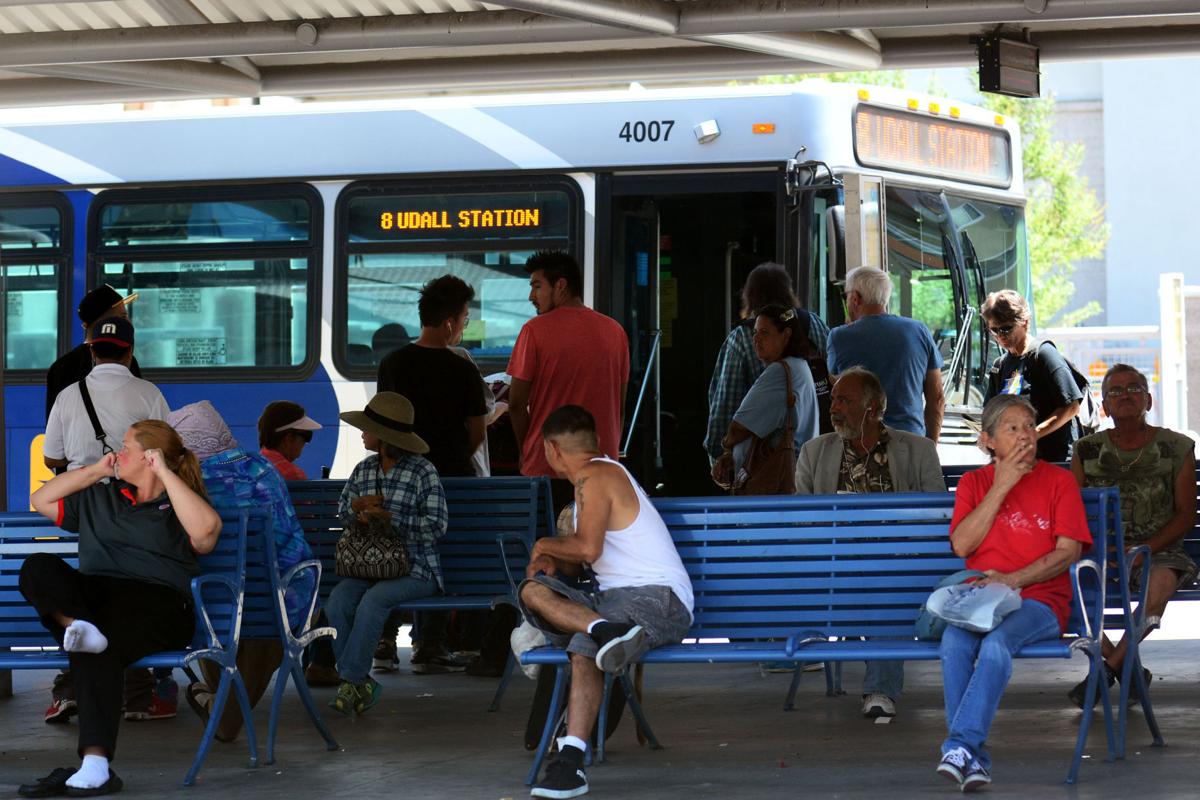There have been a lot of recent developments in the local transit system, so let’s recap.
Transdev, the private operator of the Sun Tran and Sun Van services, will be completely out Sept. 1 after a month-and-a-half transition period to RDMT, the private operator of the Sun Link streetcar.
RDMT will have that responsibility through the end of 2018 after its contract was recently extended for a year, at which point the city hopes to transition to a unitary operator and single contract for the entire transit system. Some city officials also hope to move to an alternative management model at the end of that period, which could include the creation of a new transit board with its own taxing authority, though that option faces serious legal obstacles and skepticism from some officials.
A repeat of the 2015 Teamsters bus strike was avoided, and a three-year contract was inked earlier this summer.
So now, with one operator for the whole system for the next year-and-a-half and labor stability for the next three, officials are asking: Where do we want to go with transit? Earlier this month, the Tucson City Council got details on how RDMT came to operate the whole system and discussed how best to use the coming months to plan the next steps.
City Manager Michael Ortega told the council Tucson was lucky to have another private operator already on the ground when it was learned Transdev was looking to get out in short order.
“We started looking at options, and quite frankly we didn’t have a lot. We really were painted into a corner, so I had to make the call,” Ortega said of the July decision to pick RDMT and extend its contract by a year, adding later: “It was not an attempt to pre-empt the council in any way, it was not intended to exclude anyone, it was really an opportunity to buy us some time.”
Time to do two things: Put together a request for proposals to run the whole system and contemplate what different management model, perhaps a “regional approach” in Ortega’s words, might make sense. The request is expected to be out by early next year, according to a timeline provided to the council.
Several council members are hoping that RDMT and whoever ends up running the system after 2018 is incentivized to increase ridership, which has been declining steadily at Sun Tran, due to both ongoing effects of the 2015 strike and national trends. Ridership on the Sun Link streetcar, which has not experienced a strike, has also been steadily declining, according to monthly reports analyzed by the Road Runner.
Martin Burke, the new Sun Tran general manager brought in by RDMT, spoke with the Road Runner last week and said ridership is one of his key concerns. However, he was hesitant to suggest solutions until he has had a chance to comb through the data.
“The first thing we have to do is find out where we lost (ridership) and when we lost it,” he said, adding later: “Service has to be reliable, it has to be safe and it has to be convenient for customers to use it.”
For Burke, who was most recently RDMT’s general manager of the Denton County Transit Authority in Texas, the new job is a homecoming of sorts. He attended the University of Arizona for several years in the late 1980s, during which he said he “fell in love with this place.”
When it comes to alternative management models, one regional approach — a so-called Metropolitan Public Transit Authority — would require some significant legislative changes to be viable.
A transit authority would have an elected board tasked with overseeing the transit system and would be able to levy property taxes, thus providing the dedicated funding some city officials and community members feel is necessary to avoid labor conflict and improve the system.
However, Arizona law does not “provide a viable mechanism for securing funding and/or for providing alternative management for the city’s public transit operations,” according to a recent memo from City Attorney Mike Rankin.
The Legislature would have to OK changes defining transit authorities as special taxing districts, allow for their creation only by election and repeal a current $1 million cap on indebtedness, which “is anachronistic,” the memo reads.
Councilman Steve Kozachik said the chances of the Legislature approving those changes are slim to none, and he thinks the most likely outcome at the end of 2018 is to simply stay with the status quo: The city of Tucson making decisions about routes and service and hiring a private management company to run the system.
“It’s important that we get this done sooner rather than later, so we don’t wind up backed into a corner like we just saw, with one option, which is to say no options but one,” he said of the importance of developing a solid request for proposals to run the system.





